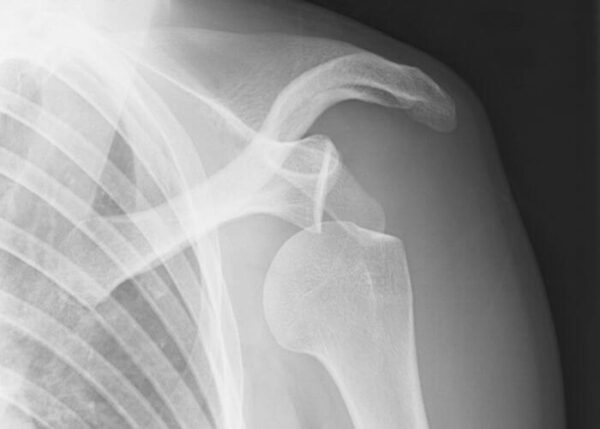Dislocated Shoulder Specialist

Are you an athlete who participates in contact sports? If so, you may be at risk of sustaining a shoulder dislocation. A shoulder dislocation can occur from a sports injury, traumatic blow to the shoulder or from a fall. Dislocated shoulder specialist, Dr. Matthew Provencher provides diagnosis and both surgical and nonsurgical treatment options for patients in Vail who have dislocated their shoulder. Contact Dr. Provencher’s team today!
What is a Shoulder Dislocation?
The shoulder is considered the most mobile joint in the body and has the ability to move and turn in a number of directions. While this high degree of mobility is advantageous, the wide range of motion also causes the shoulder to be highly susceptible to injury. A dislocation occurs when the ball and socket within the shoulder joint separates. The dislocation creates shoulder instability and allows the ball (humeral head) to move beyond the normal constraints placed by the socket (glenoid bone) in a forward, backward and/or downward direction. Orthopedic shoulder specialist serving the Vail, Aspen, Colorado Springs and Denver, Colorado communities, Dr. Matthew Provencher is highly skilled in diagnosing and treating patients who have experienced a shoulder dislocation.
A dislocated shoulder is a common injury in athletes, especially athletes involved in football, hockey, basketball and other contact sports, as well as baseball, volleyball and tennis players who undergo repetitive arm motions.
If the shoulder dislocates, it is at an elevated risk of experiencing another dislocation. Many patients who have sustained a dislocated shoulder have weaker shoulder ligaments, thereby resulting in ongoing shoulder instability. Shoulder instability occurs when the bones, ligaments, muscles and tendons surrounding the joint do not work properly to secure the ball and socket in place.
What are Dislocated Shoulder Symptoms?
Patients who have sustained a shoulder dislocation may experience a variety of symptoms, including:
- Significant shoulder pain that may spread through the arm
- Arm numbness
- Shoulder weakness
- Deformity of the joint
- Difficulty or inability to move the arm
- A popping sensation
- Decreased range of motion
How to Know if you Have a Dislocated Shoulder
If a patient experiences a shoulder dislocation, or demonstrates severe shoulder instability, prompt medical care should be sought. Medical care will be focused on returning the shoulder joint to its original position, otherwise known as reduction. Certain patients may experience reduction naturally without medical assistance. However, for those that require reduction via medical assistance, a physician will manipulate the dislocated shoulder and place the ball back into the socket.
Once the shoulder is in its proper position, Dr. Provencher will examine the joint to assess the extent of damage. He will also perform specific tests to determine the severity of shoulder instability, such as the sulcus sign, posterior load and jerk test and the apprehension and relocation test. These tests will allow for an accurate diagnosis that will guide treatment decision-making. Aside from physical examination, an MRI and a series of x-rays may also be performed to define the extent of damage.

What are the Treatment Options for a Dislocated Shoulder?
Treatment of a shoulder dislocation is dependent on the overall injury severity, past shoulder dislocations, patient age and patient’s activity level.
Does a Dislocated Shoulder Require Surgery?
Following the dislocation, Dr. Provencher will immobilize the joint in a sling or other immobilization device for several weeks in conjunction with a regular schedule of icing and rest. A physical therapy program is commonly suggested in order to strengthen the surrounding muscles, restore range of motion and improve symptoms of shoulder instability.
When to have Surgery for a Dislocated Shoulder
Dr. Provencher may recommend a surgical procedure in cases of persistent shoulder instability and chronic shoulder dislocations. An arthroscopic shoulder surgery is typically performed to repair and/or tighten the injured labrum (cup-shaped rim of cartilage that reinforces the ball and socket) and ligaments. This technique is popular in young athletes since it typically allows a quick return to sporting activities.
For more information on a dislocated shoulder and shoulder instability, please contact the orthopedic practice of shoulder specialist Dr. Matthew Provencher, serving patients from Vail, Aspen, Colorado Springs and Denver, Colorado.